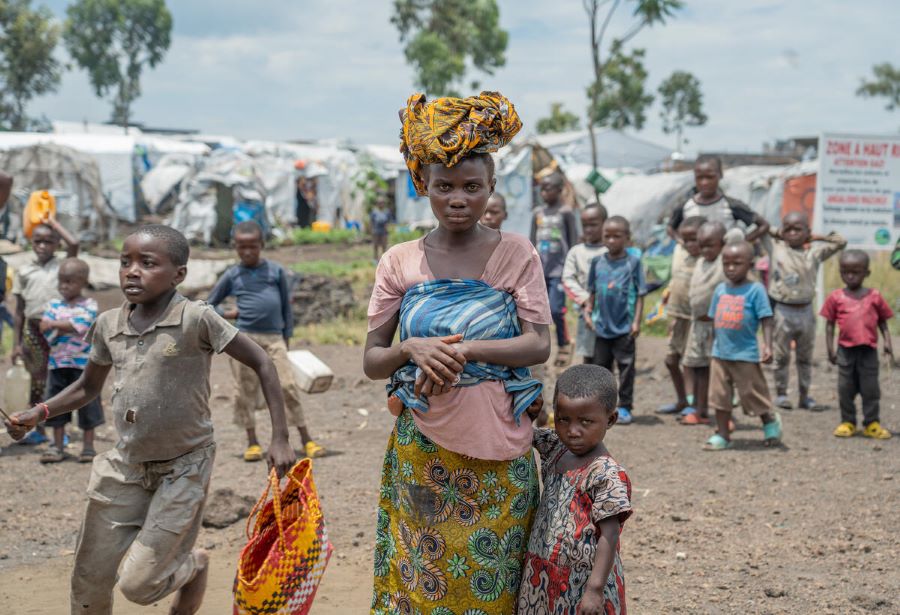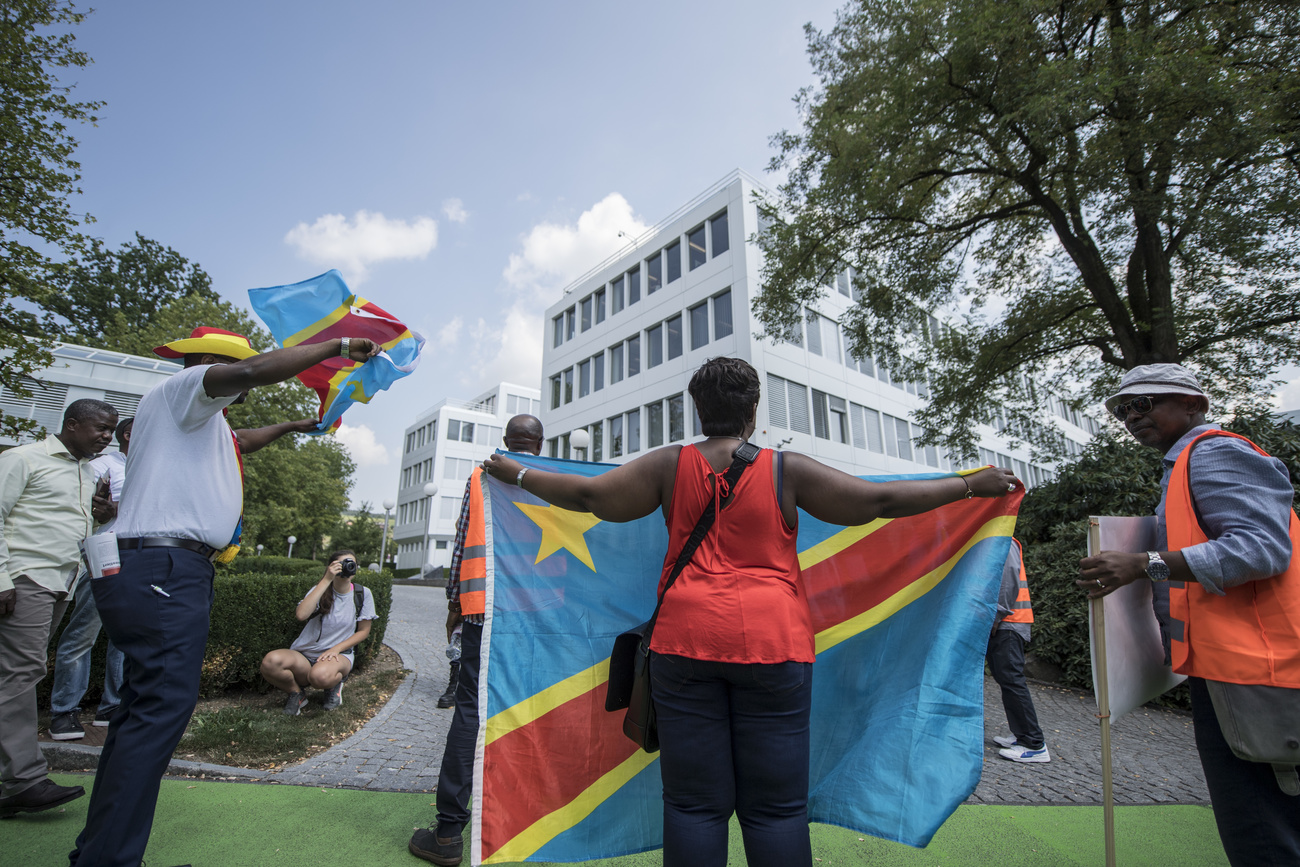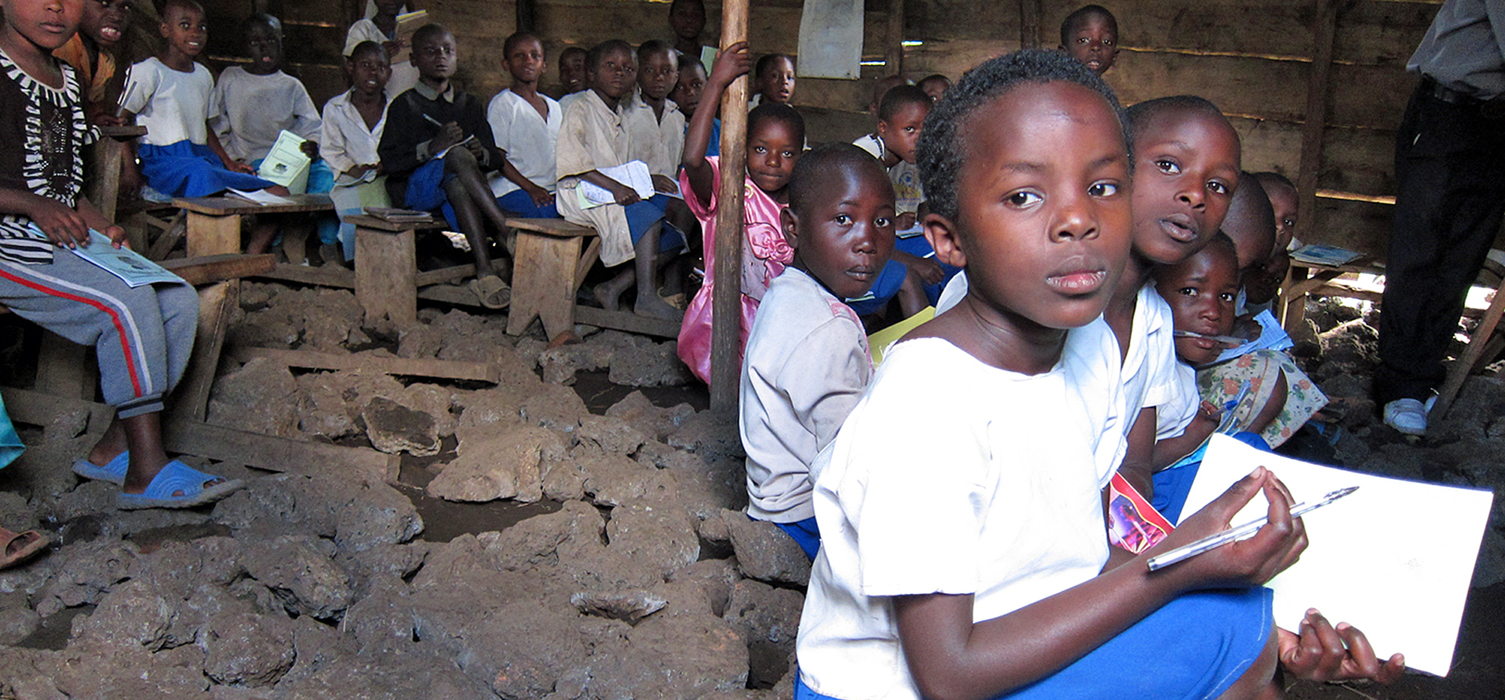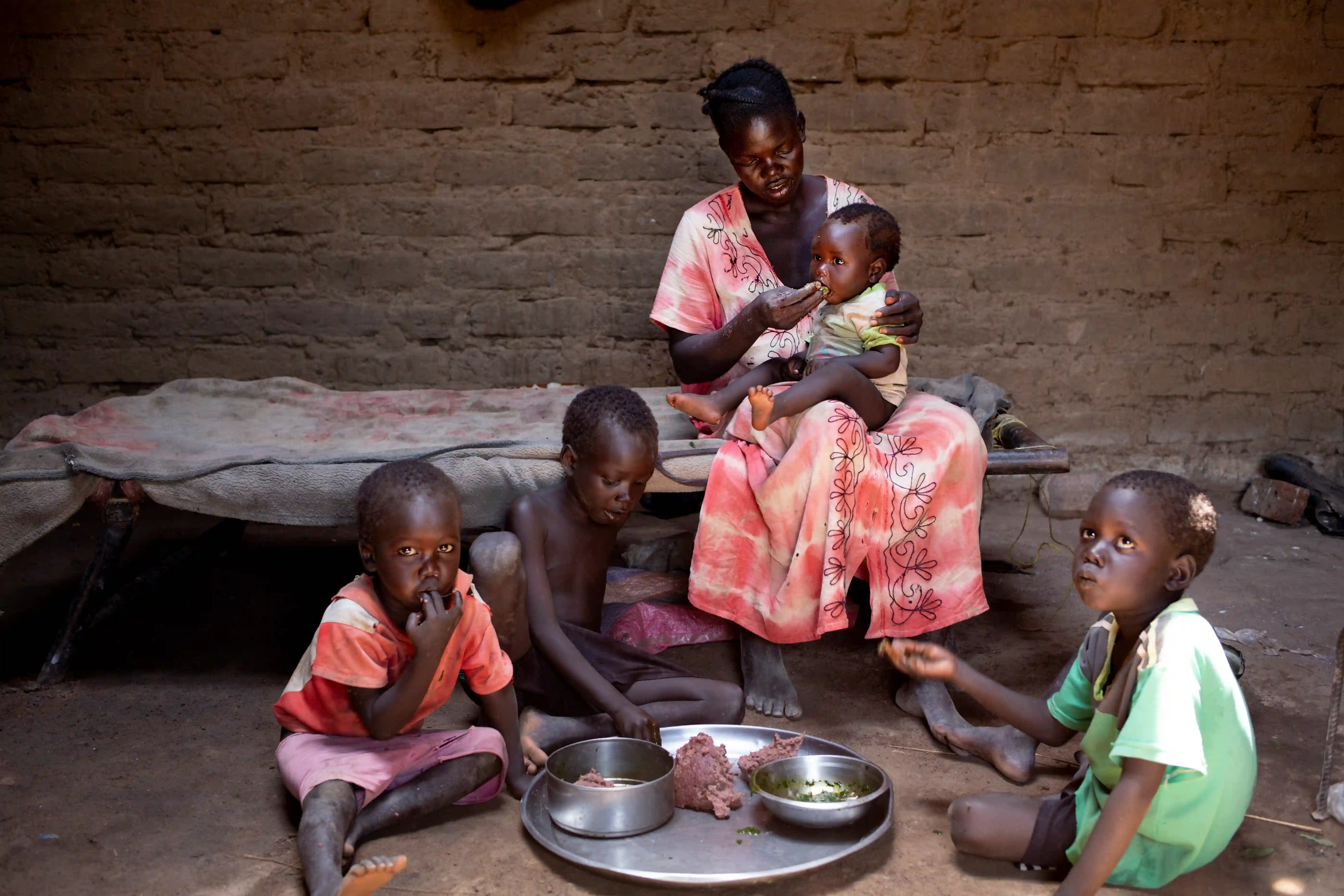Congo’s Hunger Crisis: 25 Million at Risk Shocking Living Conditions!
Approximately 25 million people in the DRC face a state of emergency and worsening hunger! Most live in squalor, in small, often dirty places with no or restricted access to food, healthcare, and schooling.

Picture how one could attempt to feed a family on diminishing rations in a limited house when schools and clinics are kilometres away or inaccessible. For 25 million people in the Democratic Republic of the Congo, this scenario becomes real. Daily, tens of millions are powerless to overcome hunger and denied adequate food, medicine, and schools.
The DRC is experiencing a severe hunger crisis due to prolonged conflict, political instability, and economic difficulties. People are forced to flee their homes; farms and sources of income are lost, to violence and scarcity of resources as local markets are empty, and even basic food rises in prices out of people’s reach.

The healthcare sector reveals a severe lack of publicly managed clinics, so often residents of rural areas can only reach a doctor in 8 hours. Moreover, many children are unable to attend school because they lack food, while others cannot afford school fees if fees are even required. In this challenging environment, famine is part of a broader issue that has impacted the country over the past few years.
Why is DR Congo facing such a massive hunger crisis?
The hunger crisis in the Democratic Republic of the Congo results from various humanitarian issues that have progressively worsened.
Conflict and displacement– While it had earlier experienced, the DRC had been submerged in years of conflict, particularly in the eastern part. Militia has directed violence to citizens, and competition for the resource has escalated hence causing citizens to lose their homes and farms. Because of the mentioned problems, hunger is a constant outcome experienced by these families who cannot obtain land, or build stable communities, and therefore cannot produce their crops either.
Instability on the economic front as well as poverty– The DRC is endowed with Natural Resources such as Minerals as well as Fertile land but has immensely faced challenges in its economic growth as a result of Corruption, poor governance, and inadequate Infrastructure. These challenges explain high poverty levels and restrictive vertical human capabilities requiring approaches that enhance food security such as health and education. Hiked food prices in near producers’ stores also compound the problem of food insecurity because many households cannot even afford basic bowls.

Adequate Agricultural Infrastructure– Farming remains the dominant economic activity in the DRC, but the country does not have an adequate investment in basic inputs and utilisation essential for farming production including irrigation, transport routes, and facilities for storage. It also means that in periods of relative abundance, food transported across the large territory of this enormous country is scarce and the price goes up.
Human sufferings; poor uptake of health care- Inadequate or low-quality food diets have led to poor immune systems, which expose a given community to diseases. It has from time to time faced various outbreaks such as ebola, measles, and cholera which puts a lot of pressure on an already weak health system and the ability of a population to work and earn a living hence increasing the levels of poverty and hunger.
Climate Change and Environmental Influence– The DRC is subjected to unstable weather conditions which include drought and flood which has affected farming. It adversely affects the circumstances prevailing within a given community by making it difficult for the same to forecast the farming seasons and in the process provide an appropriate calendar that best suits the farming fraternity hence prone to crop failure that leads to food scarcity.
Limited Access to Education– Education is a luxury for most children in the DRC and this is even more enumerated for children in conflict areas. Illiteracy which results from lack of education means that children grow up without proper learning skills or prospects of getting proper jobs. The problem of hunger becomes hereditary, and having failed to feed, parents transfer hunger to the next generations.

Political instability has remained a leading cause of the DRC’s hunger crisis that continues to affect the nation. The DRC has been plagued by poor leadership, corruption, and cycles of violence over several decades which have lightened the country’s development making way for hunger and poverty.
While we still categorise the Democratic Republic of the Congo at the top of the list of countries most affected by hunger, all these problems result from the country’s political instability due to poor governance, corruption, and lack of investment in essential services such as health and conflict resolution for a very long time. Nonetheless, the country has been unable to fully benefit from this richness and bring a tangible difference into people’s lives, as extralegal funds are channeled differently – towards corruption purposes and lavish intricate projects that are detrimental to the basic needs of millions of people, their lack of proper healthcare, and education, and untimely access to food.
Competition for power and resources, the major factor in the Eastern part of the continent, tends to make the population displaces, food security unstable due to continuous conflicts. Governments of the past decades have not made food security a priority and the agricultural sector remains stunted having limited access to the relevant tools, knowledge, and food aid. Another reason that is attributed to violence and forced evictions includes land issues and poor policies governing land use also making it hard for such people in rural areas to feed themselves.

Competition over resources and political instability as a result of elections aggravate the state’s instability, regional tensions increase the vulnerability of those communities and because of poor accountability and rule of law, exploitation accompanied by human rights violations goes unaddressed, and the public loses faith in the political system while international investors lose interest. These factors cause hunger, poverty, and instability to feed into each other, which means that achieving political change and improving governance institutions is the only way to link up a stable political future for the DRC with achieving food security.
What measures are being taken to curb the hunger crisis?
Some action is being taken to address the hunger crisis in the Democratic Republic of the Congo (DRC), however, barriers remain highly significant.
Currently, African nations and regional organisations are part of their effort to support the DRC to solve its problems, for instance, the hunger dilemma and ongoing conflicts. The AU plays a role in fulfilling diplomatic engagements to negotiate conflict resolution and realisation of peace, on the other hand, SADC and ECCAS involve themselves in regional security and provision of humanitarian Assistance.
Some measures are being taken to assist in conflict resolution in the eastern DR Congo through resettling affected families and supporting their way of livelihoods. Infrastructure initiatives seek to enhance transport and market networks thereby ensuring that segmented markets transport basic foods at reasonable prices.
Moreover, the African countries plan to increase their trade and investment cooperation with the DRC, boosting the country’s domestic economy by developing cooperation ties through trade liberalisation and infrastructure development. Some of the regional organisations are also funding agricultural programs to enhance food production and capacity building for local farmers and the African health organisations have partnered with the DRC government to counter aspects of health menace such as malnutrition and disease outbreaks. All these collective strategies underscore the need for solidarity in the DRC in the attainment of its phases heading to stability and recovery.
Global Solidarity for DR Congo
The global actors are availing enormous resources towards support to the DR Congo in dealing with the diverse crises ranging from hunger and political instability to conflict amongst others.
Key contributors include the United Nations which has delivered food aid, and WFP which has used cash transfers and nutritional assistance including taking care of children and pregnant women. The US, the EU, the UK, Canada, France, and Belgium, Germany and Sweden, Australia are among the countries that are promising funds for these efforts targeting food security, healthcare, and education interventions.
NGO’s such as MSF and UNICEF are also improving primary health experiences through temporarily stationed clinics and administering vaccinations to children; or through agricultural development projects that work to improve productivity to make the area more sustainable and feed the people that live there. MONUSCO, the United Nations Organisation Stabilisation Mission in the Democratic Republic of the Congo,-utilises diplomatic approaches to address conflict and protect residents out of the country.

Also, there are investment activities in infrastructure development concerning food distribution and market access. Community-focused educational support activities such as vocational hand training and school feeding also aim at helping the affected communities and financially support their families.
Kenya learns from the success of other international advocacy campaigns that keep the cause of the Congolese people pertinent. As a whole, all these measures are intended to alleviate the situation for the short term and establish long-term perspectives for DR Congo; however, more efforts will be needed to see a structural and sustainable change in the country.
However, these programs are important steps towards reducing the present suffering and towards creating a sustainable future: but there is still much that needs to be done and the long-term strategies required must not be forgotten. Sustainable solutions will need to work towards alleviating hunger, and answering why the cycle of hopelessness enjoys a stronghold in our politics and economics. The DRC can only hope for a change of fortune, whereby its people are protected and have the opportunity to live better lives, if the international actors, civil society, and governments in the region start taking collective, principled action.




